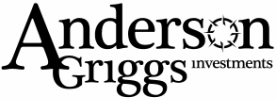|
The last decade and a half hasn’t been favorable to savers. With dismal returns, it is normal for us to question the partnerships between you, the saver, and myself and my peers, the professional advisors. After all, many of us in the industry whom you trusted with your financial future failed to recognize the signs of trouble brewing in the market place. We honored the work of the Nobel Prize winners at Long Term Capital Management. So enamored with their work, many investment advisers sought ways to include their fail-safe methods of investing in the advice given to their clients. This worked until 1998 when the world’s financial system shook at the losses created from LTCM and their fail safe method of investing. You would think we would have learned.
We all dreamed of riches in the “new economy” as the power of technology unleashed a future so grand that none of us would ever need to work again.Each month, this newest form of wealth creation, along with our overconfidence was reinforced, as the tech stocks in our brokerage statements went up, and up, and up. So enamored with the new economy, investment advisors blindly threw money at the recommendations of the “expert analysts” of the day. Advisors didn’t care whether the work of these charlatans was fact or fiction, as long as what they said moved market prices. This worked until the year 2000, when the world’s financial system shook at the losses that stemmed from our belief in the new economy. You would think we would have learned. As the memories faded from LTCM and the new economy we once again dreamed of riches; this time placing our faith in the one asset that never, ever, created a problem. It was common knowledge that real estate, especially our own homes, had never let us down. Every year we could count on the fact that the value of our home would only increase. We watched as our neighbor sold his or her house at a price that we felt was too low. After all, our house was worth more than theirs. With this belief, we borrowed against our home equity to buy those things that we simply had to have. So enamored with the guarantee that home prices will never decline, many investment advisors sought out ways to profit. These advisors combined their belief in mathematics and the power of diversification to package junk loans and claim that they magically turned into AAA rated quality; all the time using the power of leverage to increase returns in this new class of risk free investing. This worked until 2008 when the world’s financial system shook at the losses created from our belief in the never ending rise in the price of our single family home. You would think we would have learned. As a firm we can say that we did not advocate participating in these great rich seeking operations. But, we failed to recognize the fallout. We have never recommended the use of leverage to enhance returns. We lost more clients than we gained during the tech bubble, only because we believed in buying low. We did not recommend the use of asset backed securities other than GNMA’s during the real estate bubble. Did it help you or me? My only answer is NO! The damages caused individuals went way beyond direct participation. When the bubbles burst, we paid the price just as if we participated directly. Have we learned from our past mistakes? Have these mistakes caused permanent damage to the partnership between you and us, the advisory community? I hope not! We do know that steps can be taken to help mend our relationship with you. The CFA Institute has recently taken action to guide its members in hopes of restoring trust by issuing the CFA Institute Integrity List: 50 Ways to Restore Trust in the Investment Industry. Many of you are not familiar with the CFA Institute, and its 109,000 chartered financial analysts (CFA) throughout the world, but you should be. If you own a mutual fund, the probability is very high that a CFA is involved in the day to day management of your savings. If you own a variable annuity contract through an insurance company, the probability is very high that a CFA is involved in the day to day management of your policy. Speaking of insurance, if you have health insurance, or insurance on your home, there is a high probability that a CFA is involved in the management of the funds needed to pay the bills when you are sick, or your home is destroyed. In fact, there are very few of you whose future does not rely in some way on a CFA doing his or her job to the best of their ability. I am going to share the entire Integrity List with you. But first, I want to comment directly on a couple. Number 3: Place the client’s interests before your own. Every Registered Investment Adviser and Investment Adviser Representative is held to a fiduciary standard, which requires them to place their client’s interests before their own. Can a legal requirement guarantee that an advisor will restore trust? Personally, I don’t think so. To place your clients interest above your own is difficult if not impossible for the majority of investment professionals. Let me explain by a hypothetical example. Mr. and Mrs. Anderson came into the office the other day to discuss their investments. They had heard of our work from others for many years and felt as if we would provide them proper advice and a higher return than they were currently earning. We went through the motions of collecting data, discussing their future needs and reviewed their current portfolio of investments and all other legal requirements needed to document the fact that we were indeed acting as a fiduciary. After the review we suggested they hire us to take care of their investments. All seems to be well, the client is happy, we are happy, and we have met every requirement needed to document our fiduciary duty. But there is a problem hidden deep down with only one side of this partnership aware of it. You see, the portfolio that Mr. & Mrs. Anderson had before they hired us could just as easily been built and maintained by our firm. In fact, it was so similar that a third party would say that Mr. & Mrs. Anderson had their portfolio managed by our firm for years, not just a few months. Of course, we knew this before we suggested Mr. & Mrs. Anderson hire us as their manager. We could justify the change in hundreds of ways, but this rationalizing was trumped by one fact alone; that we could only get paid if we convinced Mr. & Mrs. Anderson to replace their former manager with us. Placing your interest first is a standard we strive for and hope that all advisors adhere to, but because of the ever present conflict of needing your money to manage to survive as a business, we need to pair number 14 with Number 3. Number 14: Actively disclose all compensation arrangements to clients. Although important, both you and I know that fees are just one of the many reasons that you would hire professional assistance with your savings. You may choose to hire one manager over another because of a higher level of service. You may choose to hire one manager over another because of a special expertise in a given market. You may choose to hire one manager over another because of their reputation or simply because you like one person more than another. The list is as long as there are differences between managers and management firms and each carries a cost imbedded in the fees you pay for investment services. Without knowing the total compensation you pay for the services provided, how could you make a proper decision? Let’s return to Mr. & Mrs. Anderson. Mr. & Mrs. Anderson were similar to many of the individuals we meet in that they had no idea of the total compensation they were paying to their prior manager. What they did know was the cost of our services. Once again, the reason they knew what we charged for services is another one of the legal requirements bestowed upon registered investment advisors and their representatives. If Mr. & Mrs. Anderson did not know what their former adviser charged for services should it have been our responsibility to find out and inform them of the price they paid so that they could compare to ours? Armed with this information, would they have been able to make a better decision on the total package of our services? And if we seek out and find the cost of their prior manager, are we not subject to a conflict of interest, only reporting the previous cost to Mr. & Mrs. Anderson if they are higher than our own? Conflicts always exist between clients and managers. Requiring full disclosure is a step in the right direction towards minimizing these conflicts. Rules alone will not be enough to restore trust between you and those of us who considered themselves professional advisers. My suggestion is that all advisers live their life, both professional and personal under an older rule than the current body of laws. That rule is “Do unto others as you would have them do unto you”. The CFA Institute Integrity List: 50 Ways to Restore Trust in the Investment Industry The CFA Institute Integrity List is a collection of 50 tangible steps that investment professionals can take to restore trust in the industry. The list was inspired by “real-world” ideas from CFA charterholders and members.
Kendall J. Anderson, CFA Comments are closed.
|
Kendall J. Anderson, CFA, Founder
Justin T. Anderson, President
Categories
All
Archives
April 2024
|
|
Common Sense Investment Management for Intelligent Investors
|



 RSS Feed
RSS Feed